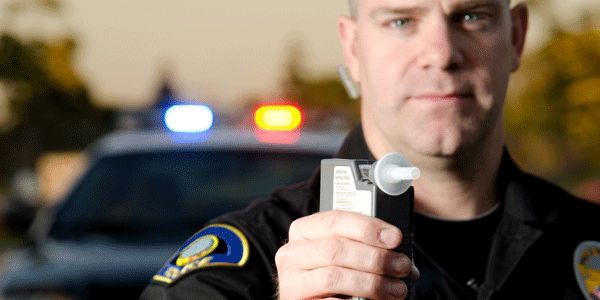DUI Attorney Examines: Being Stopped By a Police Officer on Suspicion of DUI

Thanks to the 5th Amendment, you are not required to incriminate yourself if stopped by a police officer on suspicion of DUI. Unfortunately, many people don’t know what this right entails and can unwittingly incriminate themselves, according to James F. Bogen, Attorney at Law. Of course, when it comes to any DUI situation, every instance is unique and requires the detailed attention of an attorney, says James, but there are some points everyone should know.
If stopped by a police officer on suspicion of DUI:
- Have your license & registration ready: It’s good practice to have your license, registration, and proof of insurance readily available at all times. If you try to retrieve these things after the officer asks you for them, when you are very likely nervous, there is a good chance that he could write on his report that you were “fumbling” through your wallet or purse to try to retrieve these things. Officers treat this as a sign of impairment.
- Be polite: If you are rude to the officer when you are stopped, the prosecution will argue that this is evidence of impairment. Being rude and/or argumentative with the officer will never help your case. Ever. You should also be on your best behavior if the officer leaves you alone in the back of the cruiser. Many police departments have cameras in their cruisers. If you act up in the back of the cruiser even when the officer is not present, this will be in video, and the State will also use this to argue that you were impaired.
- Remain silent: Do not answer any questions about where you were or any questions about drinking (i.e. how much you have had to drink or what you have had to drink). Politely tell the officer that you do not wish to answer any questions without an attorney present.
- Do not consent to a search: If the officer asks to search you or your vehicle, simply say no.
- Exit the vehicle when asked: If you’ve been asked to exit the vehicle, do so in a calm manner when the officer asks you to. Take care not to pull yourself up or brace yourself with your door when exiting the vehicle. Officers and prosecutors treat this as another sign of impairment.
- Do not consent to a field sobriety test: Do not take any roadside tests, the breath test, a urine test, or any other test without speaking to an attorney first. Politely make it clear to the officer that you do not wish to take any tests before speaking to an attorney. If an officer is investigating you for DUI by asking certain questions or speaking of certain tests, it is a pretty good bet that the officer has already decided to arrest you anyway and is just trying to build evidence for prosecutors.

- Chemical Tests: You do not have to submit to a field sobriety test, but many states have harsh penalties for refusing to submit to a chemical test (breath, blood, or urine test). In Ohio, refusing to take a chemical test may result in a one year suspension of your license if it is your first offense. However, if you are arrested for DUI after taking a chemical test, your license will very likely be suspended for a shorter period of time. Tell the officer that you would like to speak to an attorney before taking any chemical test.
As with every legal situation, the circumstances of each DUI arrest are unique and the legal advice of a skilled attorney is necessary to help you. Following these tips does not guarantee that you will not be charged or convicted with DUI. There is no “one size fits all” advice for these situations, and it is advisable to speak to an attorney before deciding what to do when you are suspected of DUI. Call James F. Bogen, Attorney at Law, at (513) 503-7251 when you are facing a DUI situation and visit his office online for more information.
About the Business
Have a question? Ask the experts!
Send your question

